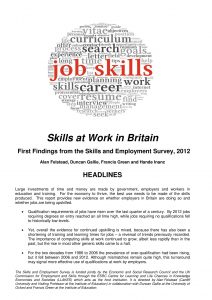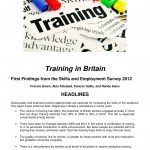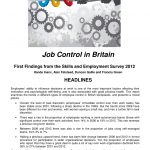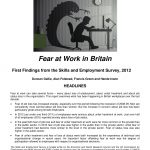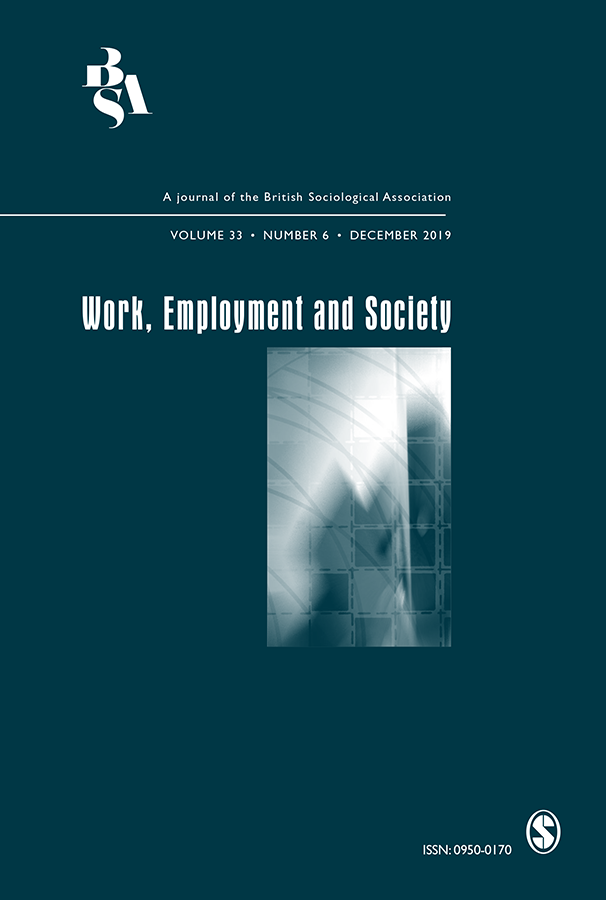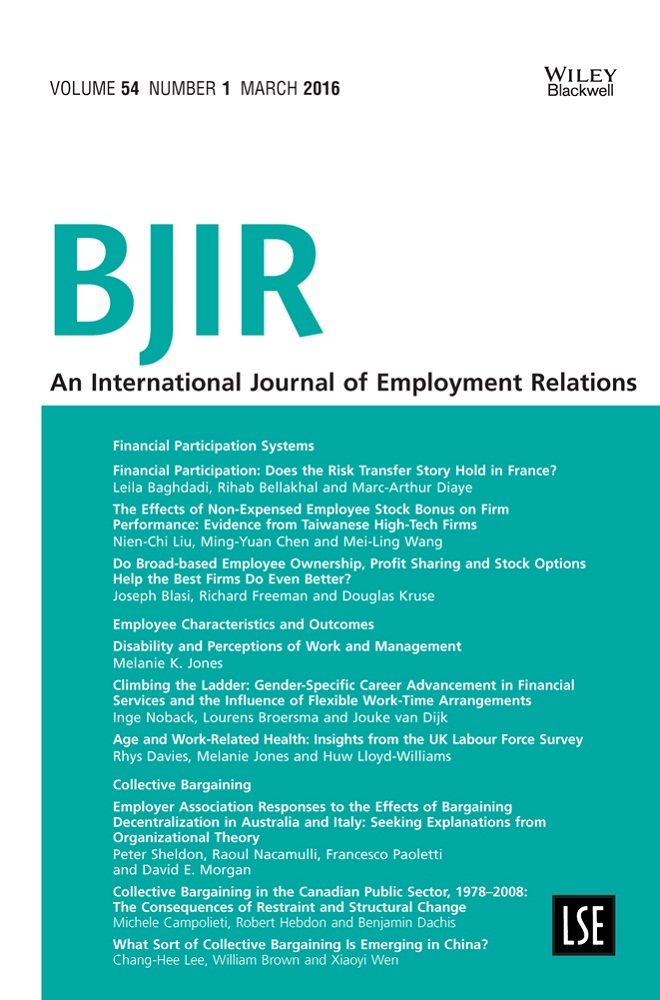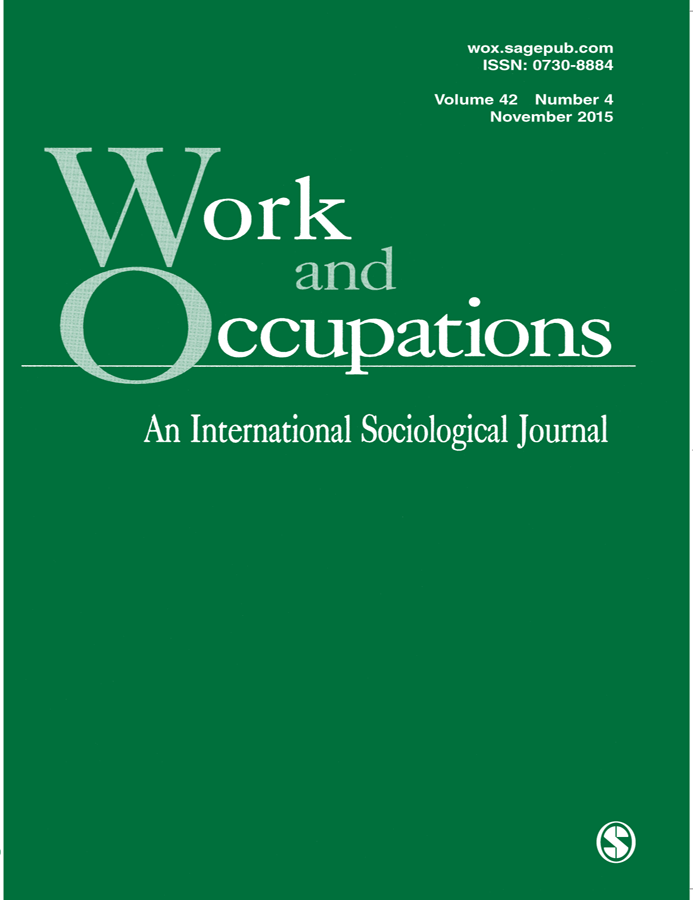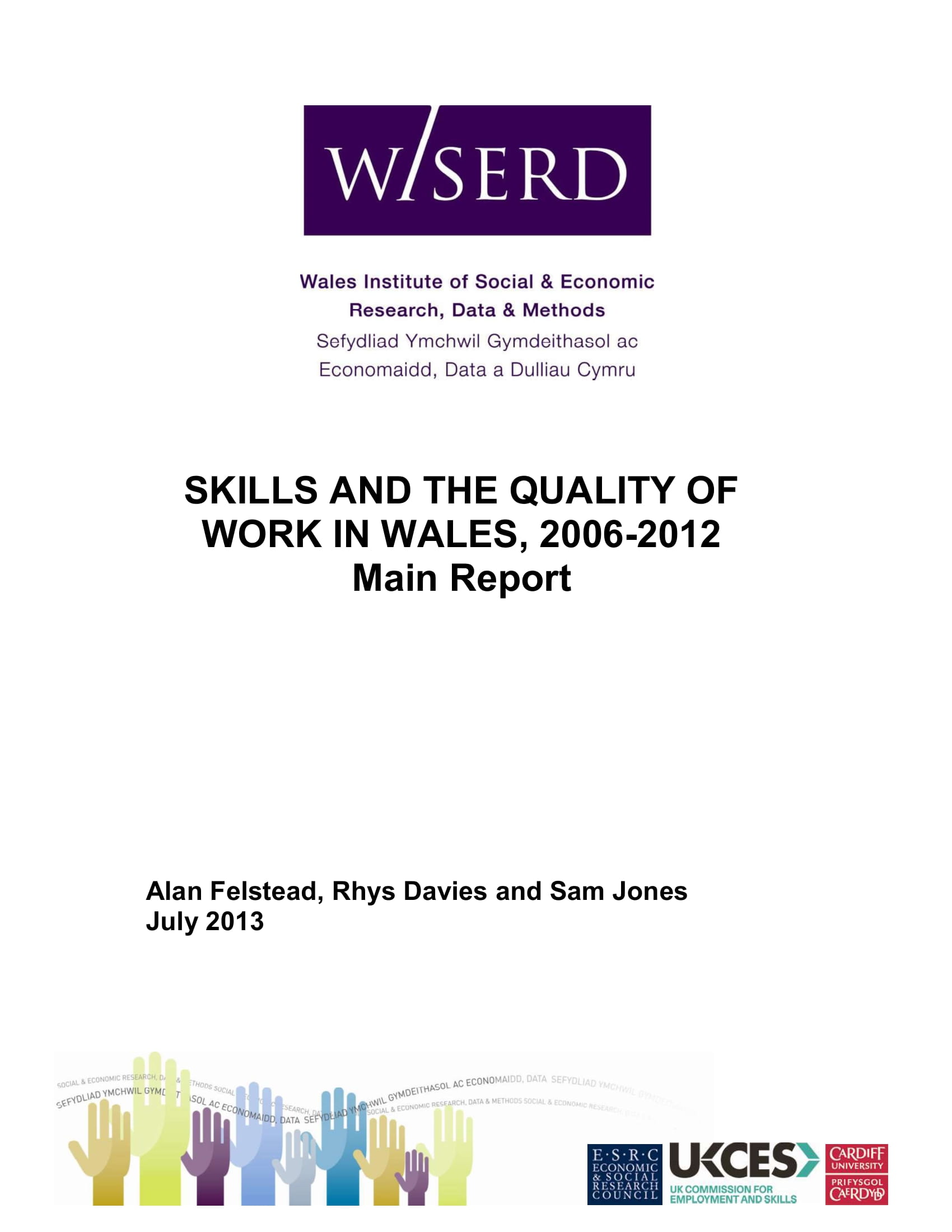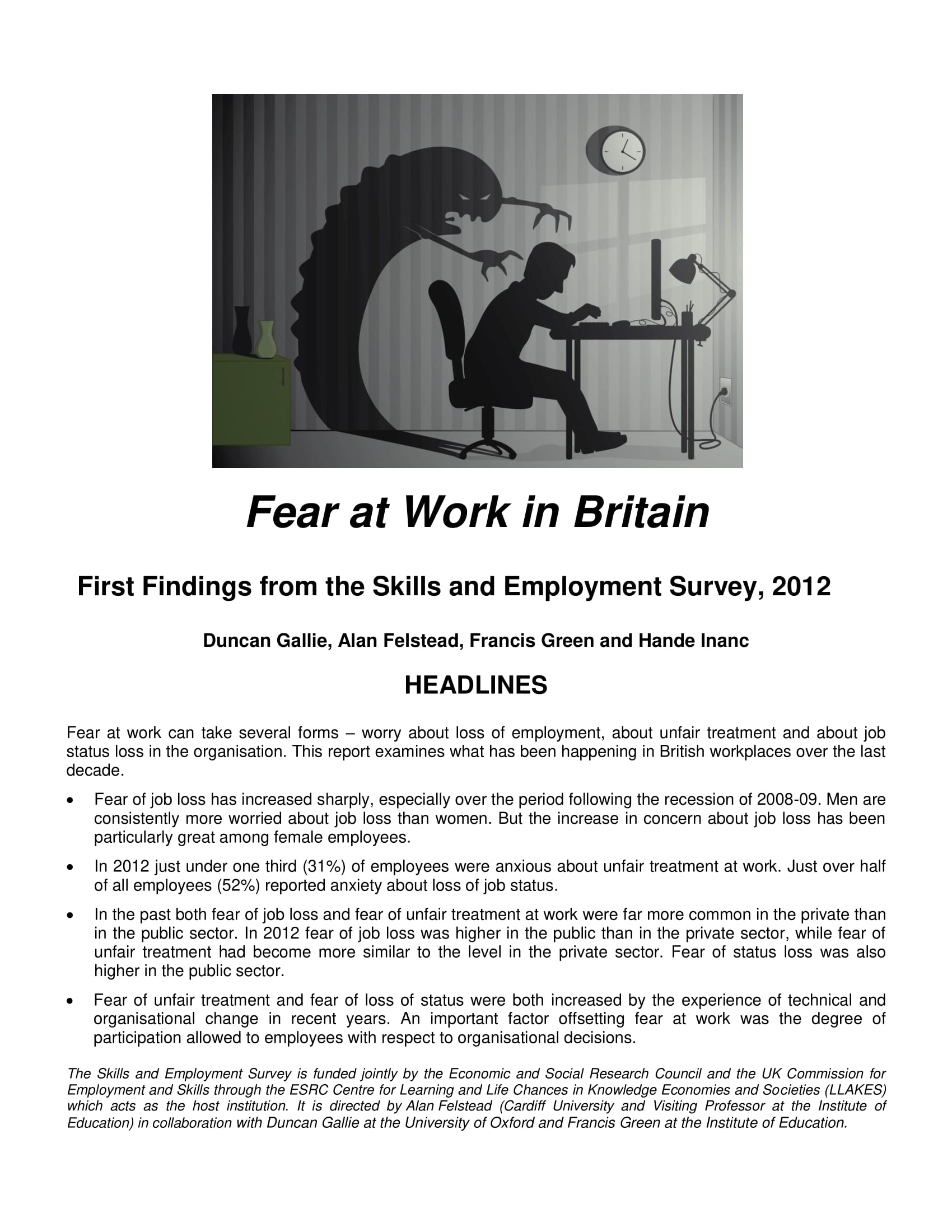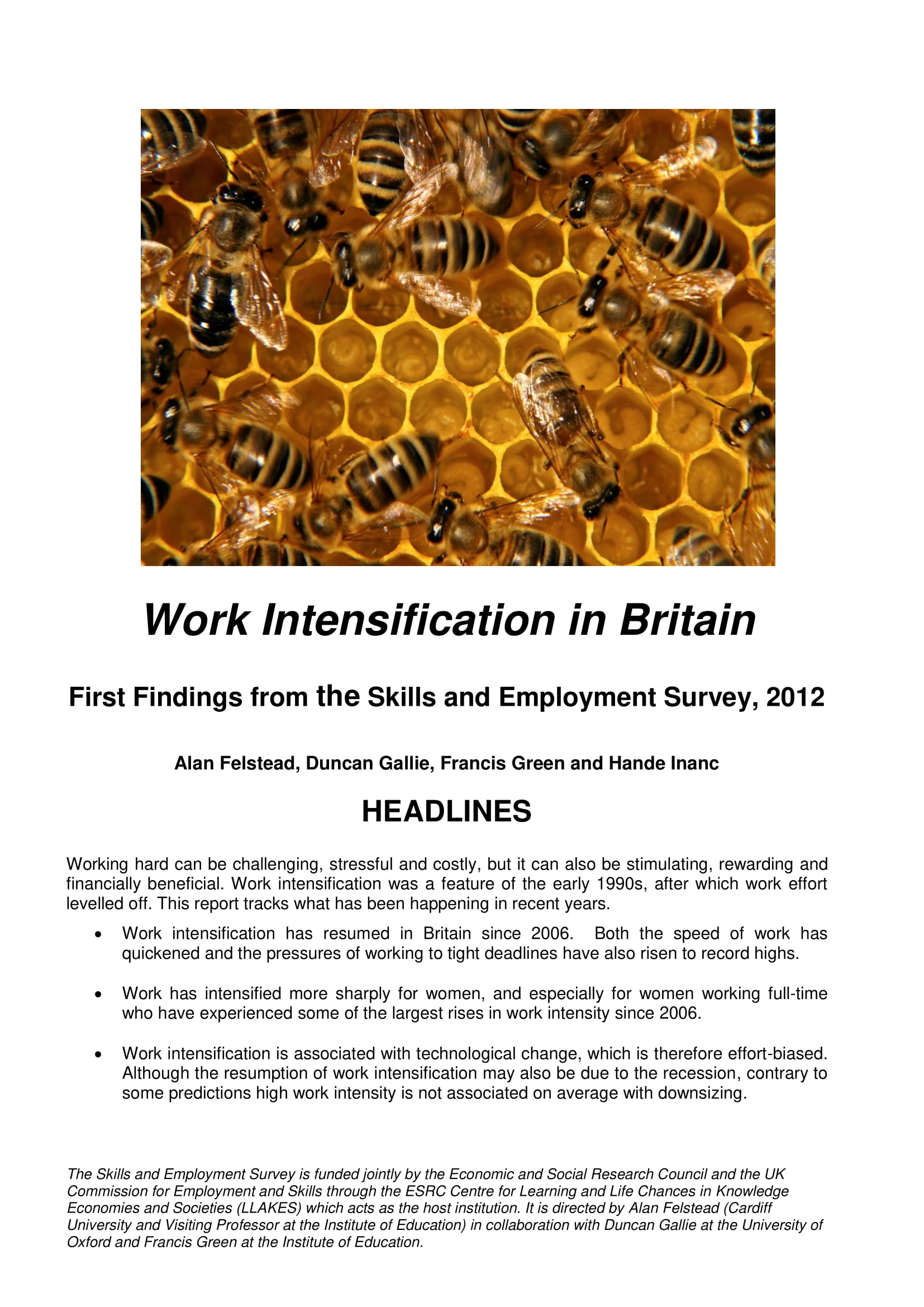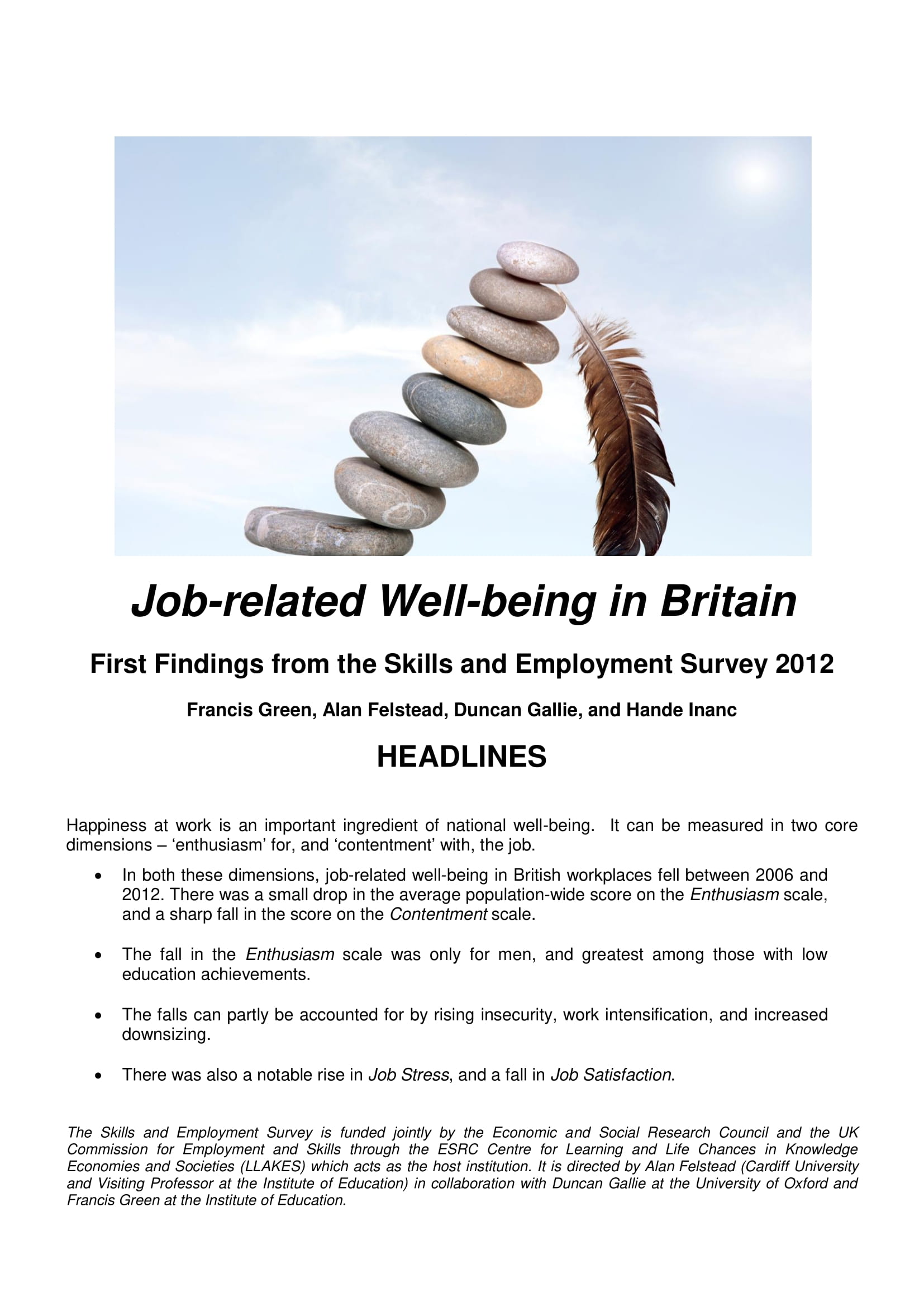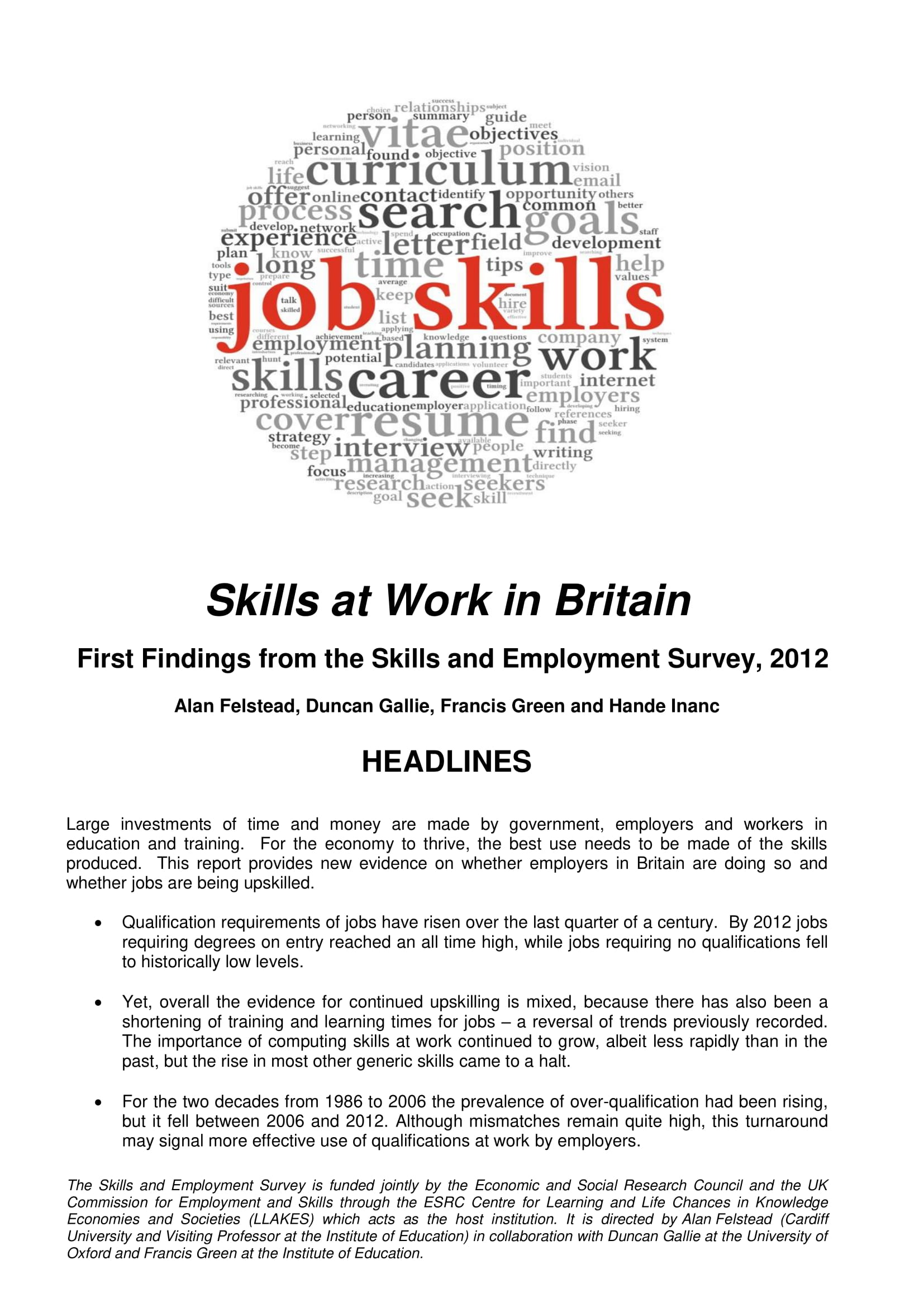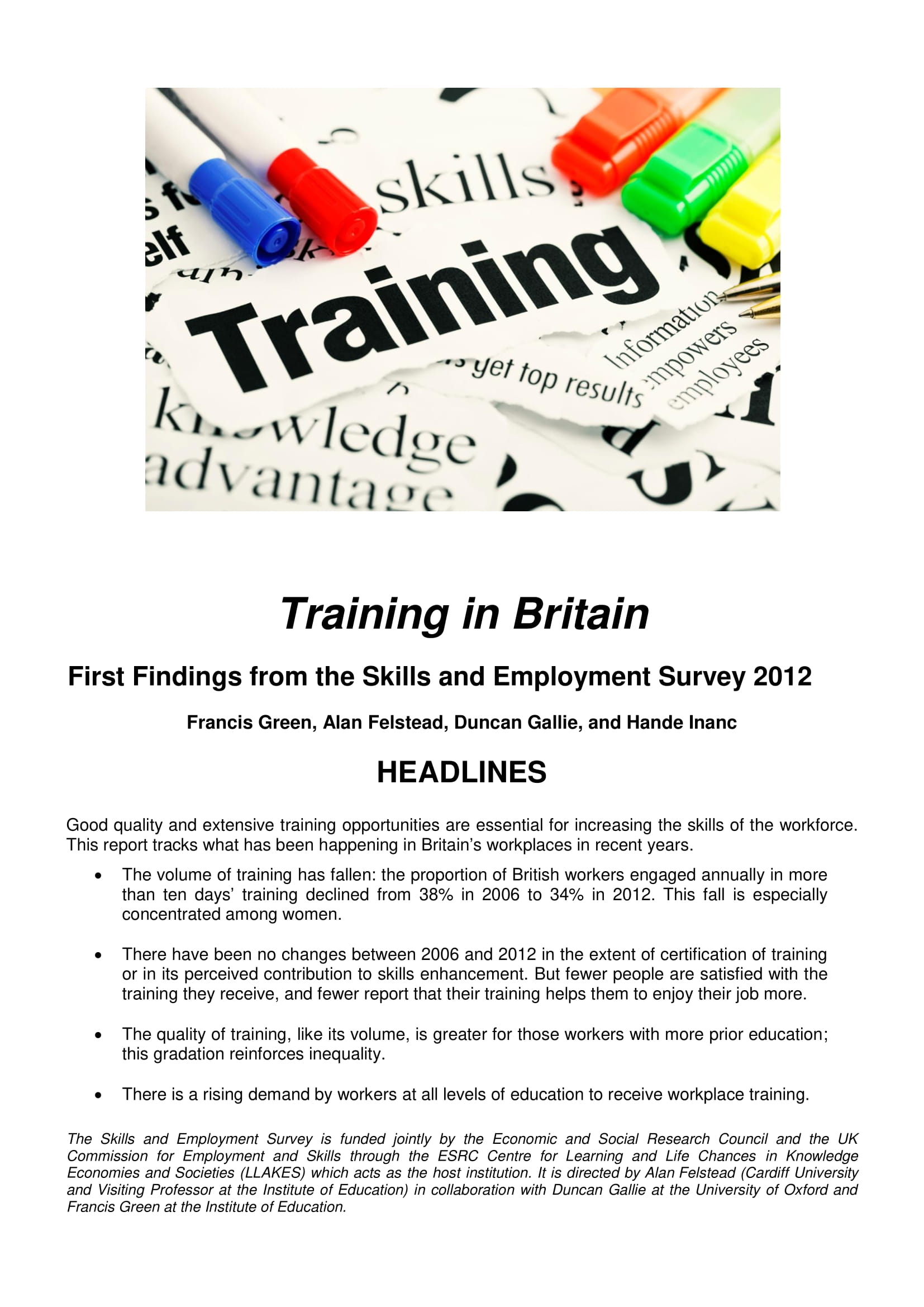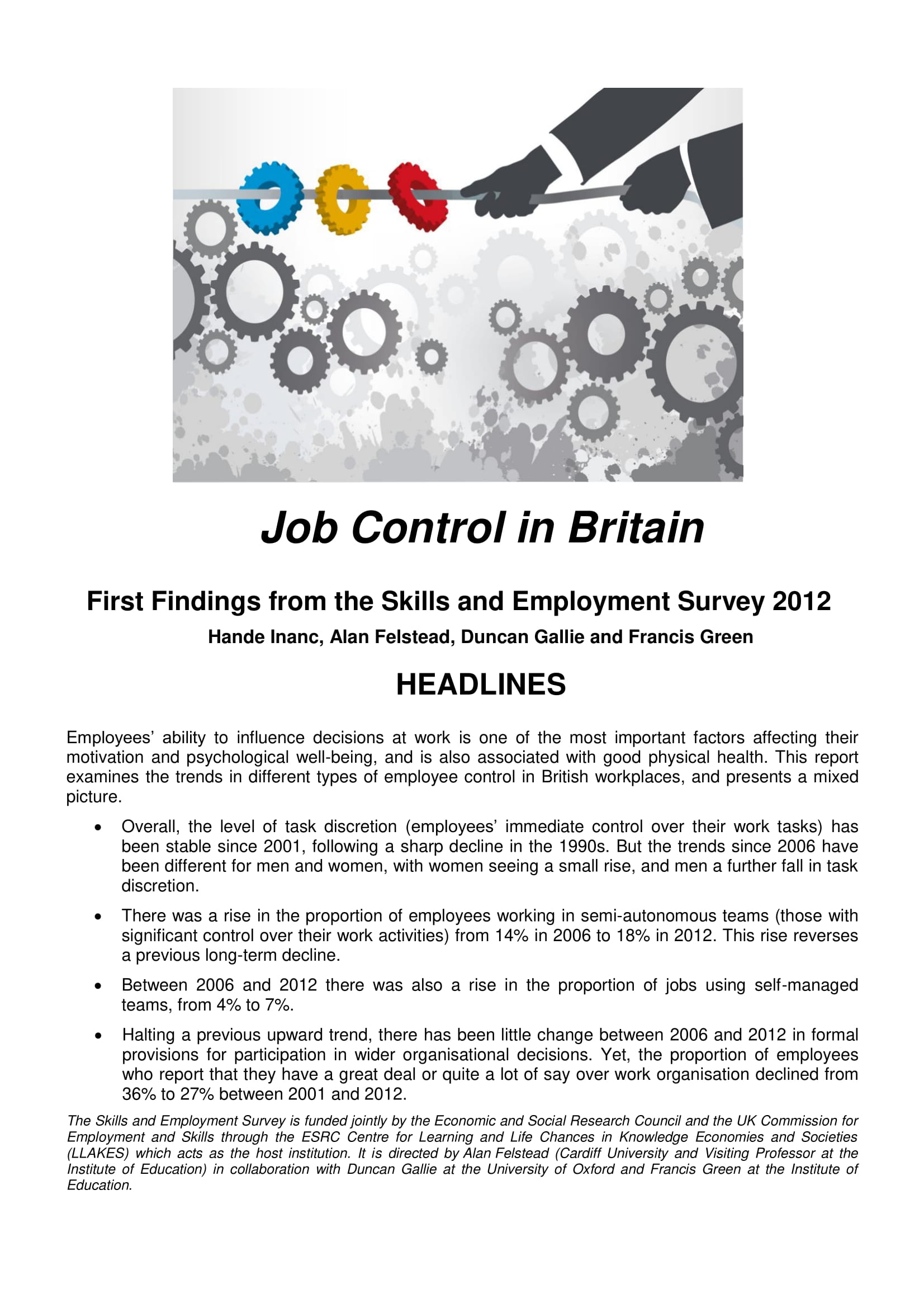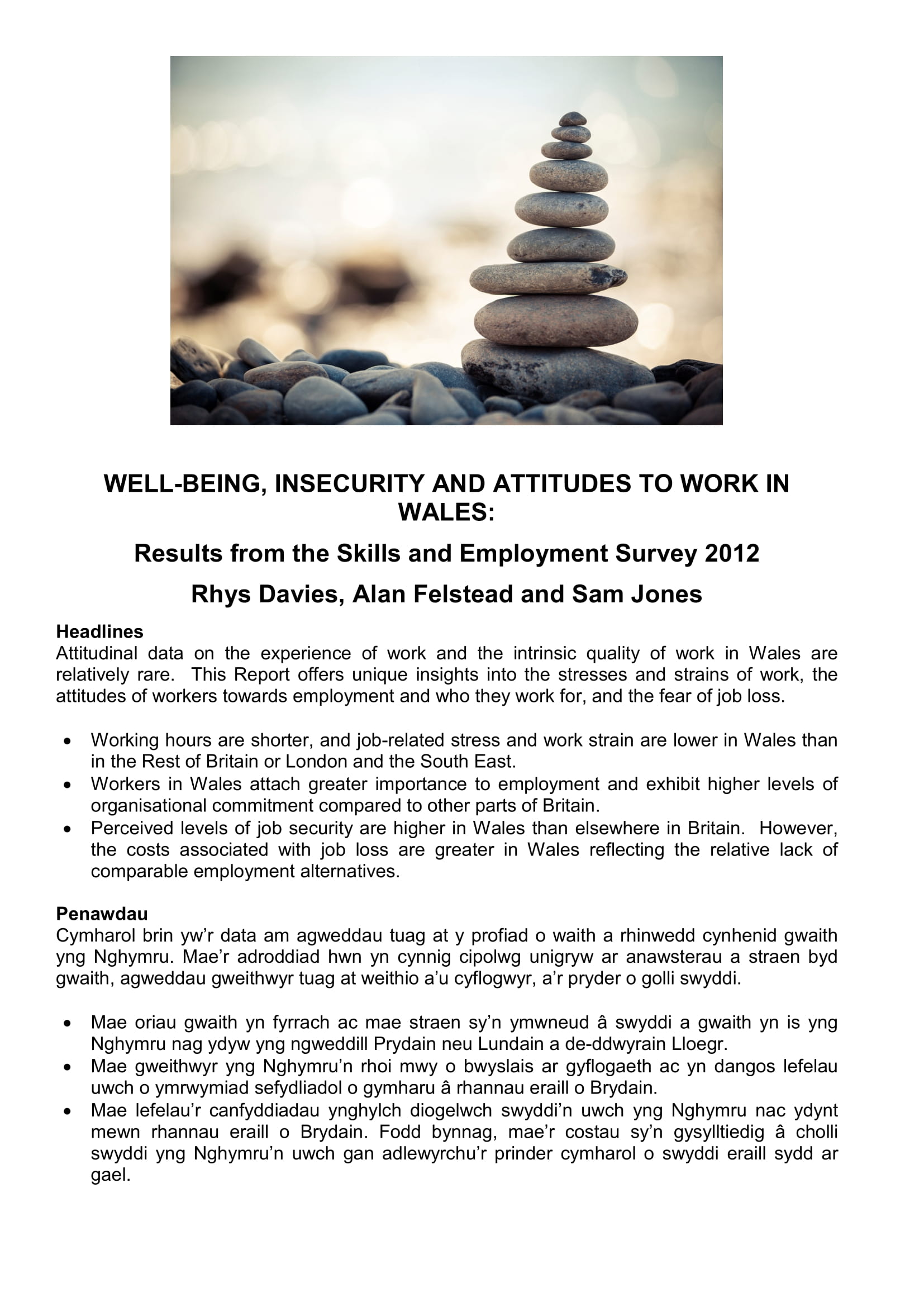The Skills and Employment Survey (2012) collects data on what people do at work, what skills they use and how they work.
It is the sixth in a series of representative sample surveys of workers in Britain stretching back over 30 years. These cross-sectional surveys provide the means to chart and explain the changing pattern of job quality and skills over time.
In 2012, a total of 3,200 workers were surveyed with 1,108 of them questioned two years later in a shorter follow-up survey. The series is a crucial part of social science research infrastructure which has provided the basis for many publications which are listed below.
List of known publications DOCX, 40.4 KB
Short reports
Skills at Work in Britain
Large investments of time and money are made by government, employers and workers in education and training. For the economy to thrive, the best use needs to be made of the skills produced. This report provides new evidence on whether employers in Britain are doing so and whether jobs are being upskilled.
Job Control in Britain
Employees’ ability to influence decisions at work is one of the most important factors affecting their motivation and psychological well-being, and is also associated with good physical health. This report examines the trends in different types of employee control in British workplaces, and presents a mixed picture.
Work Intensification in Britain
Working hard can be challenging, stressful and costly, but it can also be stimulating, rewarding and financially beneficial. Work intensification was a feature of the early 1990s, after which work effort levelled off. This report tracks what has been happening in recent years.
Data
Access to the anonymized data sets in the survey series are available to authorized users via the Economic and Social Data Service.
- SN 7467 – Skills and Employment Survey Series, 1986, 1992, 1997, 2001, 2006 and 2012
- SN 7466 – Skills and Employment Survey 2012
- SN 6004 – Skills Survey, 2006
- SN 4972 – Skills Survey, 2001
- SN 3993 – Skills Survey, 1997
- SN 5368 – Employment in Britain, 1992
- SN 2798 – Social Change and Economic Life Initiative, 1986

